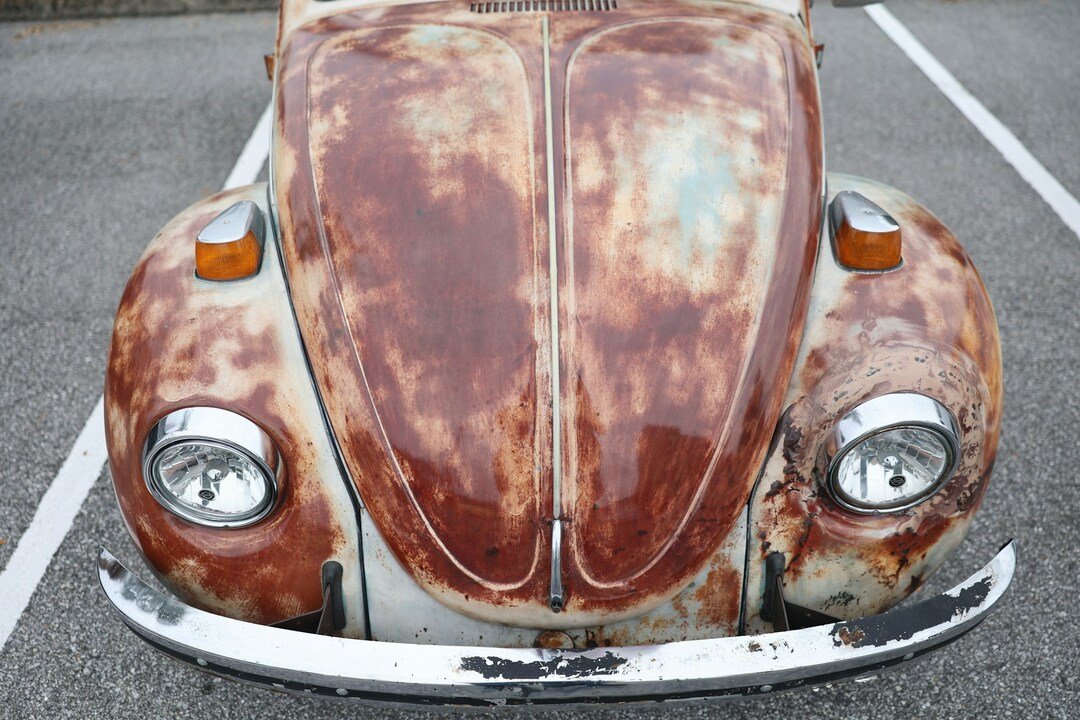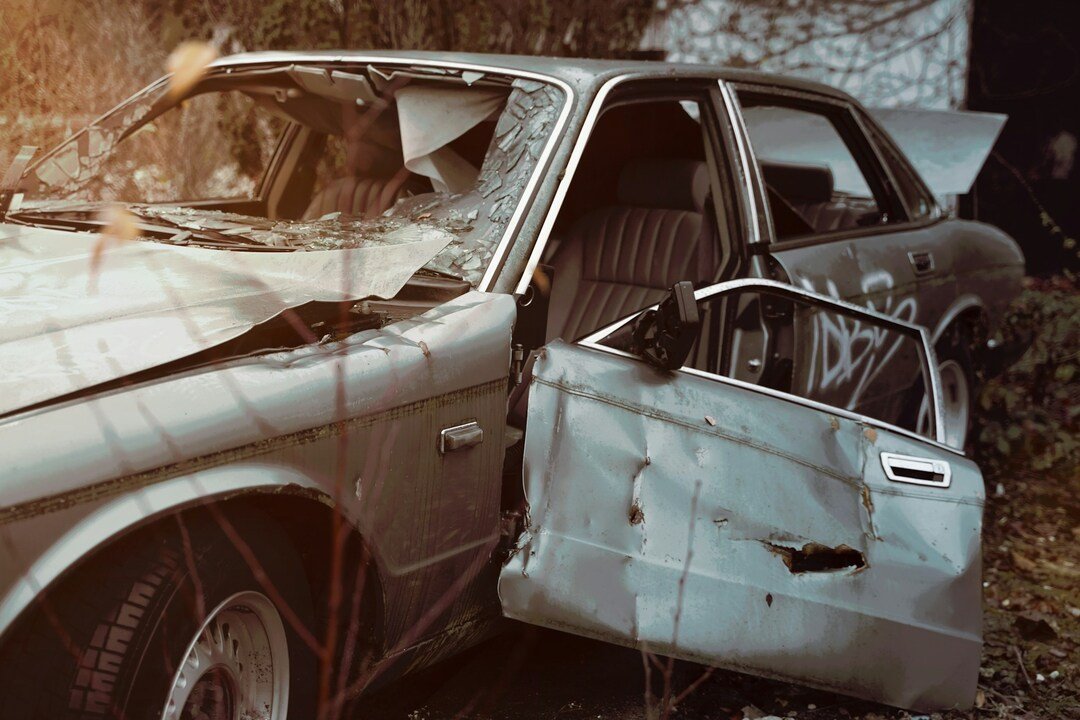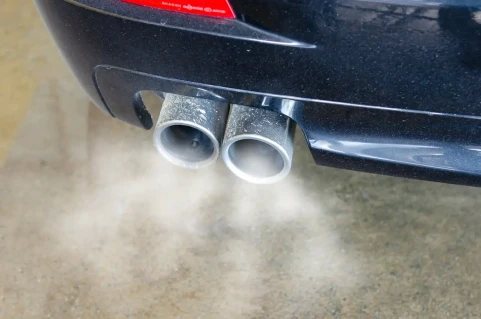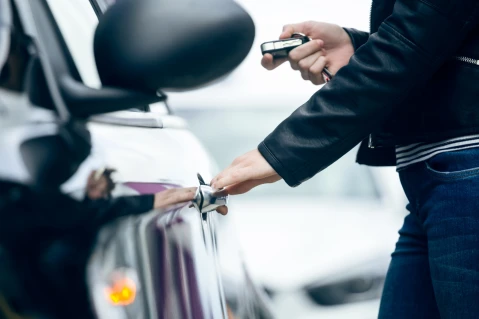Let's face it: buying a used car can be an overwhelming and disorienting experience. Without expertise, it's hard to know the real value of the used car you're looking at. Perhaps it has been lovingly maintained and has thousands of miles remaining in its lifespan, or perhaps it will fall apart in a month or require expensive maintenance.
When you buy a vehicle, understanding the different car titles is key. Knowing the difference between the different titles of used cars can make the difference between an informed purchase and a big disappointment.
Cars are one of the biggest purchases most people will make in their lives, so it pays to do your due diligence on the different types of titles. Not all titles are what they seem, so always make sure to evaluate each car on its own merits as well as its title.
Read on for an explanation of the major car titles and their respective benefits and drawbacks.
What Is a Salvage Title?
Salvage cars can be among the most tempting used cars. Often, the sticker price of a salvage car will be far below its new or gently used equivalent.
But be sure to take a close look before you close the deal on a salvage car. A salvage title generally declares that a car has been significantly damaged, stolen and subsequently recovered, or declared a total loss by an insurance company. In some states, it is illegal to drive salvage cars on public property, even if they are drivable.
However, there are many reasons a car could have a salvage title, not all of them bad. A savvy consumer or skilled mechanic can potentially leverage the salvage title of a car into a great bargain.
Some salvage title vehicles have been declared totaled by car insurance companies. The word "totaled" may conjure up images of destructive accidents. In reality, it just refers to the cost of repair exceeding a certain percentage of the car's value.
In some cases, cars will be declared totaled with only cosmetic damage, and will still be perfectly drivable once fixed. This is rare, however, so exercise extreme caution when looking at totaled vehicles.
Some salvage titles are cars that have been stolen and recovered months later, well after an insurance company has replaced the previous owner's car. In most cases, these cars will be re-titled before resale, but occasionally cars can slip through the cracks.
Other salvage titles have been in natural disasters like hurricanes, floods, or tropical storms. These are best avoided, as water damage and hail damage can be difficult to detect and can wreak havoc on a car months later. When looking at cars you suspect may have been in a natural disaster, you can look up the Vehicle Identification Number using a tool like EpicVin to find out if it has been licensed in a disaster-prone area.
In some states, a car may receive a salvage title if it has a substantial amount of aftermarket components. Depending on the quality of the components and the mechanical skill of the seller, this can even be desirable. Aftermarket parts can affect both safety and insurance costs, so tread carefully.
In other states, a salvage car may even be a kit car - a replica of a classic or unique car built from aftermarket parts. Or it could be a classic car or restored antique, which lost its original title and registration long ago. State regulations for classic and restored cars, as well as cars built from kits, can require different or less stringent inspection standards.
With a lot of research and specialist knowledge, a salvage car can be a fantastic bargain. But if you are unsure, stay away from salvage cars to avoid problems down the road and check your state's regulations regarding salvage titles.
What Are Rebuilt Titles?
The exact definition of a rebuilt car can vary state-by-state, but it generally refers to a car that was at one point a salvage car - that is, a car that was at one point declared too damaged to be worthy of repair.
Salvage cars will usually have to be repaired by the buyer, while rebuilt cars have generally been repaired by a dealer or mechanic. They have usually passed an inspection to make sure they have been restored to full roadworthiness and safety standards.
Rebuilt cars can be great bargains as well, but as with salvage cars, there are many factors to watch out for.
This is another place where you will want to refer to your state regulations. Not all inspection processes for rebuilt cars are the same. In some states, cars are only looked at by law enforcement to see if they are structurally complete and have no stolen parts, not if they are safe to drive or free of mechanical issues.
Rebuilt cars should also be assessed for potential natural disaster and water damage, which can be nearly invisible but cause major problems.
The resale value of rebuilt cars will be lower than new or regular used cars, and insurance may be harder to get or more expensive.
However, in certain circumstances, rebuilt cars can be the best option. If you need a car for off-roading, farm labor, or other use that may incur heavy damage, a rebuilt car can be a solid affordable option, particularly if you keep it on private property.
A rebuilt car can also be useful if you are looking for a very specific car. Perhaps only one particular year and model will satisfy you and a rebuilt car is the only available option. In these cases, a rebuilt car may be a great solution to your needs.
No matter what, when buying a rebuilt car, have a mechanic you trust give the car a thorough inspection before you finalize your purchase.
What Are Damaged Titles?

"Damaged title" is generally used interchangeably with "salvage title", although use can vary state by state. A car with a damaged title is likely to have incurred damage from a natural disaster, such as flooding, or to have been declared total at one point.
You should exercise the same caution with damaged titles as you do with salvage and rebuilt titles.
What Are Branded Titles?
A branded title is an umbrella term for any car that has been significantly damaged or compromised in any way. Title branding is tied to the car's identification number. A car can have multiple branded titles. Salvage titles and rebuilt titles both fall under the umbrella of branded titles.
Some branded titles do not appear often when searching for used cars, but they are useful to know about nonetheless. Some examples follow.
Lemon Title Brand
A number of state laws allow customers to return new cars with major defects or mechanical problems. Like all car titles, the requirements for "lemon" status vary state by state. In general, a car with a lemon title brand has been deemed unsafe to drive. Though some may technically be legal, they should be avoided.
Odometer Rollback Title Brand
Mileage is one of the most important factors to consider when buying a used car. Cars with an odometer rollback title have been tampered with in order to appear as if they have been driven less than they actually have been.
Once again, these cars may technically be legal but are best avoided. In general, an odometer rollback brand is the sign that the car was in the hands of an unscrupulous dealer at one point. A car with this problem is likely to have other problems as well.
Water Damage Title Brand
This branded title is a subset of a salvage or rebuilt title, signifying that the car has sustained significant water damage. As discussed above, water damage can be one of the most difficult and undetectable car problems, so a potential buyer should steer clear of cars with a water damage brand.
Hail Damage Title Brand
Hail may seem like a rare event, but it is common enough to majorly affect insured cars. In fact, almost 60% of severe weather insurance claims every year are due to hail.
Hail damage on a car can be severe. Like water damage brands, hail damage brands should generally be avoided unless the car is looked over by a trusted mechanic.
Other Car Titles to Know About

Clear Title
A clear title is the most desirable title when searching for a used car. Cars with clear titles have no outstanding issues and little potential for damage compared to salvage or damage titles. Of course, this means cars with clear titles are generally the most expensive type of used car, but for many the peace of mind is worth the extra cost.
Junk Title
Junk titles are given to cars that have been sold to a junkyard for parts or scrap metal. In some states, junk titles are classified as salvage titles.
Needless to say, if you're looking for a used car for daily driving purposes, avoid any car with a junk title.
Bonded Title
Bonded titles are a form of buyer protection for cars that have missing or destroyed proof of ownership. A security bond equal to the value of the car is given to the buyer upon purchase, ensuring their financial protection in the case of a future dispute over the car's ownership.
Bonded titles are uncommon, as they are typically more expensive for the seller than a salvage or rebuilt title, but they offer a strong incentive for the consumer. The buyer knows that they will be financially protected should new information about the car's legal owner arise. A bonded title may also be called an affidavit title.
Researching Car Titles and Vehicle History
Title Washing
Requirements for car titles can differ between states, and occasionally a car will be "title washed". This refers to giving a car a better title than it previously had, usually after moving the car between states. Some state standards are different, and occasionally dealerships will withhold important information when having the car re-titled. Title washing is not just a dubious business practice, it's illegal. If you suspect your car dealer of doing this, stay well away from their cars!
Checking Used Cars Using Their VIN
One way to arm yourself with knowledge when buying a used car is to research the car's history using its VIN. VIN stands for Vehicle Identification Number and is a unique 17-character code attached to each vehicle. Using a VIN can inform you of a car's full history - where it was registered, its past titles, and even its likelihood of having been in a natural disaster.
At EpicVIN, we offer a free VIN check by state that will provide you with an overview of your vehicle's history. No matter what kind of used car you intend to buy, a title check will help you determine whether there are any warning signs .
For more information on your potential purchase, you can request a full Vehicle History Report through EpicVIN. This detailed report will inform you of the sales history of the car, any accidents in its past, its mileage, and any other important information to know, such as recent safety recalls.
There are many factors to consider when buying a new vehicle, and the experience can be disorienting and complex. However, we at EpicVIN know there is no feeling better than driving off the lot with full confidence in your new machine. We wish you luck in your search for a new car!







